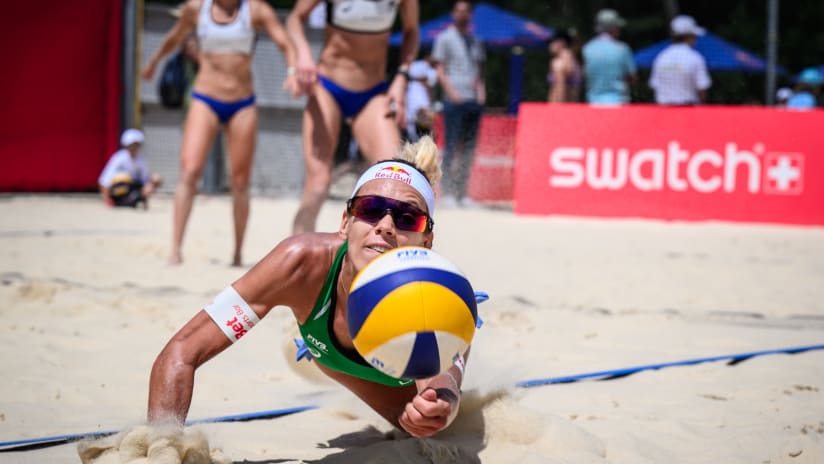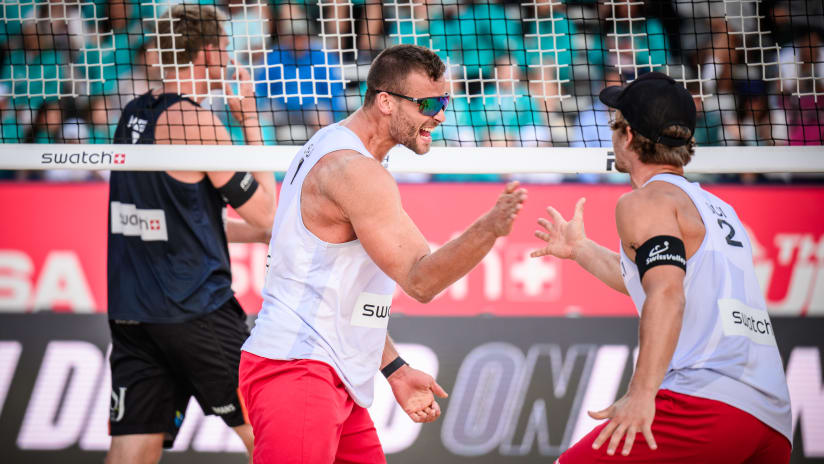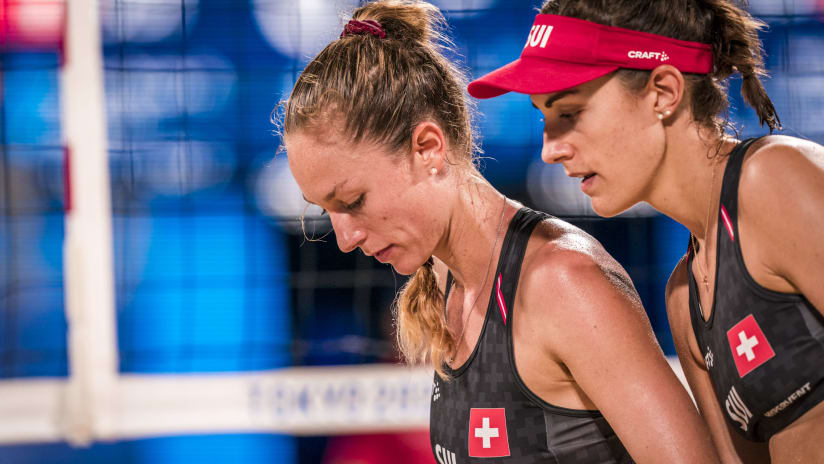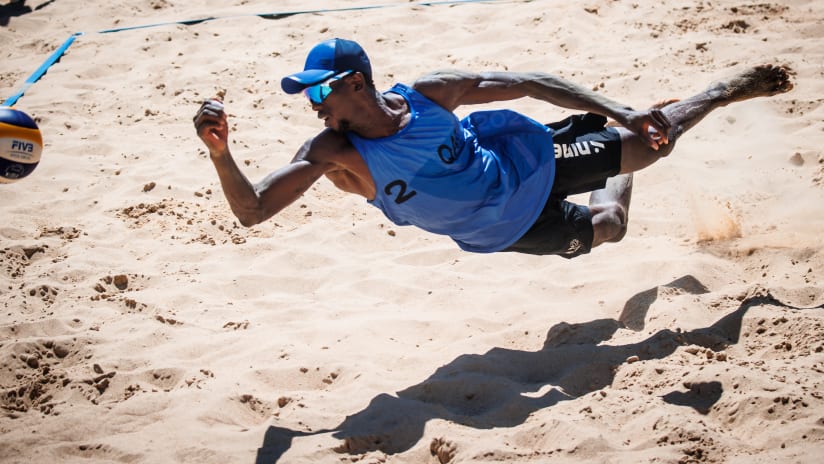How long could the label have stuck, anyway? For years, Tina Graudina and Anastasija Kravcenoka were considered by much of the beach volleyball community as those plucky underdogs from Latvia, a country whose players, no matter their success, always seem to be stuck with the label of plucky underdogs.
Gstaad, Switzerland
Latvia's Graudina, Kravcenoka underdogs no more, seeking a medal in Gstaad
After being considered underdogs for years, Latvia's Tina Graudina and Anastasija Kravcenoka are one of the world's best
Published 06:53, 07 Jul 2022

Aleksandrs Samoilovs and Martins Plavins? They were the grittiest of the underdogs in 2008 – when they sent shockwaves through Beijing in defeating Phil Dalhausser and Todd Rogers in the first round of pool play at the Olympics. Plavins and Janis Smedins? They took the role and delivered yet again in London, in 2012, winning Latvia’s first Olympic medal.
- Watch the pool play matches and quarterfinals in Gstaad on the Beach Volleyball World YouTube channel. The semifinals and finals will be streamed live on Volleyball TV.
Even with the annual success of their male counterparts, it makes sense why Graudina and Kravcenoka would have been considered sizeable underdogs on the women’s side. Latvia had never sent a women’s team to the Olympics, and until this year, they were really the only competitive Latvian women’s team.
Even with Graudina being voted the 2018 Rookie of the Year, even with her and Kravcenoka being named the Most Improved Team of 2019, they still, for reasons that remain unknown, couldn’t really shake it.
“Before that we felt like we were the young team coming in, and we’re still young and have a lot of things to improve, but we’ve earned that place in the world and we need to act like it and show the appropriate level,” Graudina said. They’ve showed it. Time and time again have they showed it, reserving their peak performances for the grandest of stages. In 2021 followed a fourth in Sochi, a fourth in Gstaad, a fourth at the Tokyo Olympics, a fourth at the European Championships.
They say fourth is the toughest finish to swallow, allowing two shots at a medal to go unclaimed. Graudina didn’t see it that way.
“Some could say that fourth is the worst, but there are so many people who would love to be in that position and play final four,” she said. “It’s crazy, we had so many fourths.”
And then?
Breakout.
A silver medal to open the season at the Rosarito Elite 16, the first medal on the Volleyball World Beach Pro Tour.
“Only upwards from here,” Graudina said. “That’s what we’re trying to do in Gstaad.”
It’s a brilliant start they’ve gotten in pursuing just that. Graudina and Kravcenoka are 2-0 thus far, winning pool with a pair of wins over Atenas Gutierrez and Maria Quintero of Mexico and Corinne Quiggle and Sarah Schermerhorn of the United States.
“We are here, it’s a new year, a new Gstaad tournament, we don’t think about the last year,” Kravcenoka said of their fourth place finish from a year ago. “We’re just trying to do our best here.”
They are joined at the top of pool by Tanja Huberli and Nina Brunner, Maria Carro and Angela Lobato, Sophie Bukovec and Brandie Wilkerson, Melissa Humana-Paredes and Sarah Pavan, Duda and Ana Patricia, Megan Kraft and Emily Stockman, and Mariafe Artacho and Taliqua Clancy.
It’s impressive company in which they find themselves – company in which they have proved, for several years now, that they firmly belong.
"Every coach is telling us ‘You are not underdogs! Every team is scouting you, and every team is looking for your weak spot! Make sure you’re ready!’” Kravcenoka said. “We were happy about our level of play in each game of the tournament.”
Happy but not satisfied. They, like everyone else in this field, are in search of a medal in Gstaad, and the real tournament begins Friday, when every match is an elimination match. Such were the stakes on Thursday for the men. No major upsets were delivered, save for the perhaps surprising result of Leon Luini and Ruben Penninga defeating Spain’s Adrian Gavira and Pablo Herrera, 21-16, 21-19, and Austria’s Martin Ermacora and Moritz Pristauz's victory over Estonia’s Mart Tiisaar and Kusti Nolvak, 24-22, 22-20. The biggest stunner was reserved for pool play, when, for the second tournament in a row, Poland’s Michal Bryl and Bartosz Losiak, troubled by a tightening of hand-setting interpretations, failed to break out of pool, losing the second match to Brazil’s Evandro and Alvaro, 29-27, 17-21, 12-15.
But at this stage, as Graudina and Kravcenoka will be the first to tell you, there are no more underdogs.
“It makes you be even more humble and work harder because teams do succeed at finding the weak spots and it’s like ‘Oh shoot, we’re not as good at certain things as we thought we are,’” Graudina said of the extra focus teams have paid to her and Kravcenoka. “Being at the centre of attention for some people does make us work harder.”




